- Home
- Roger Taylor
Farnor Page 22
Farnor Read online
Page 22
A few swift strides carried him to the gate where he was intercepted by the man who had been on sentry duty on the wall above the arch. He, too, was breathless from his own reckless descent of the stairs.
'He came out of nowhere, Captain,’ he protested before anything was asked of him. ‘I was listening to you, but still on look-out, honestly. I don't know where he came from. He just ...'
'It's all right,’ Nilsson said, as he pushed him aside, almost gently. The man turned to others standing around him, with a desperate, pleading expression, as if the need to justify his apparent lapse had to run the course he had plotted for it in his dash down the stairs. It spluttered to a halt only when he registered the fact that his captain intended no summary punishment for him. Puffing out his cheeks he wiped his brow, then quietly slipped back up to his post.
Nilsson had thrown open the wicket door and stepped outside.
Rannick stood there. His gaunt face and unkempt black hair testified to some neglect, and he was dressed like any of the farm labourers in the valley with his rough shirt and soiled and patched trousers. But his demeanour was quite different. He stood erect and relaxed, exuding an assuredness that was far beyond either mere confidence or brittle arrogance. And his narrow eyes were bright and piercing, as though lit from within by some awesome fire.
Nilsson's own eyes narrowed at the sight of him, as if he were looking at a bright light, or at something that was a long way away. It seemed to him for a moment that although Rannick was motionless, some strange, other-worldly breeze was tugging at him, ruffling his hair. He blinked and the image was gone, but the weight of Rannick's presence remained. He felt it now in the clear daylight just as he had in the starlit darkness of the previous night. He was in the presence of one who could use the power.
Yet at the same time as he confirmed this he recalled that even his erstwhile lord had had need of lieutenants and advisers, indeed there had been a huge hierarchy of lesser men to implement much of his will. And when he had been drawn to rely too greatly on his power, then he had been thwarted by the lesser servants of other lords. And, Nilsson knew now, powerful though he might be, Rannick was not remotely the equal of his former lord. He would have an even greater need of others to implement any plans he might have. And plans he would have, as sure as fate.
Once again Nilsson found himself torn between different ambitions. The one: to pursue his present, meandering aimless existence, effectively a fugitive from his past, and dependent on his ability to manipulate his men to his will, through both superior intellect and physical force, and his ability to turn circumstances to his own ends. The other: to take up again his quest for power and wealth by serving in the train of another, far greater.
A vista of endless wandering opened before him, with its inexorable conclusion, the gradual loss of his authority, or the retribution of others, and some weary, lonely death. It was a vision that he had contemplated many times before in his quieter, darker moments, and one that he had resolutely turned his face away from.
Things would change, he knew. Things always did, if you kept your wits about you and your sword sharp.
And they had again! he realized. His journeying so far had been but a preparation for this moment. His vision of the future changed and took him towards the wealth and power he had always coveted. Took him beyond this life of little more than miserable banditry, and far beyond the vengeful reach of his past. And, his thoughts gathering a momentum of their own, perhaps it might even take him to re-conquer what had been lost. To expunge the past!
He felt his whole body alive with exhilaration. Yet his soldier's instincts kept his feet solidly on the ground, for drawn along with these bright whirling thoughts was a small, dark one which whispered, coldly, ‘Anyway, if the worst comes to the worst, I can kill this one.'
'You've come,’ he said prosaically, moving to one side and extending an inviting arm to the open wicket. Rannick stepped through it.
Inside he gazed around the courtyard, first at the towers and other buildings and then at the men, who were staring at him.
Like a breeze unfelt below but rustling through the leaves of the trees above, a whisper hissed around the courtyard, and with it came a slight stirring.
'It's him!'
One or two edged towards him, torn between Nilsson's commands and the vengeful gossip that had returned with the patrol and which demanded immediate action.
The look on Nilsson's face stopped them.
Rannick affected to ignore the threat he had been offered. ‘You spoke well,’ he said to Nilsson. ‘I am indeed better as your friend than your enemy. And my ... local ... knowledge, as you call it, is indeed remarkable.'
Nilsson could not keep the surprise from his face. He glanced up at the high, solid wall surrounding them. ‘How did you hear what I said?’ he asked bluntly, without thinking.
Rannick made no response, but gazed around the courtyard again, and at the men still held back by Nilsson's will. Then he spoke as if there had been no interruption. ‘And while this is a good beginning, it is a small one and it would be a shame to waste the lives of any of your men needlessly.'
Nilsson felt the menace in the words but knew that he must assert himself without delay if he was to achieve the position he desired in his proposed partnership.
'They listen to me and obey me because I advise them well,’ he said. ‘But they've other loyalties, and not least among these is a battlefield obligation to collect their dead and wounded and to rescue anyone who's been taken prisoner.'
Rannick smiled at the motley collection of men who were watching him. ‘And they ... you ... need to know the fate of their comrade, Meirach?’ he said.
'If it's ... an honourable one,’ he said after a pause, adding in a lowered voice, ‘If it isn't, then a lie will be the simplest expedient.'
Rannick nodded slightly, then held up a hand for silence. The quiet that fell across the courtyard was almost tangible, until...
'Someone's coming.'
It was the sentry who had been so anxious to exonerate himself for failing to notice the arrival of Rannick.
'That's a good man up there,’ Nilsson said to Rannick. ‘Why didn't he see you?'
'Local knowledge, Captain,’ Rannick replied, smiling darkly. ‘Local knowledge.’ He chuckled to himself, then nodded towards the gate. ‘Let your visitor in,’ he said.
Nilsson signalled to the gate guard to open the wicket again and all eyes were turned towards it, bright in the shade of the gate arch. A figure was silhouetted in it briefly, before emerging into the light of the yard.
It was Meirach. And his face and hands were clear of their burns. He grinned broadly and threw out his arms as if he were returning from a great victory.
The silence was shattered as the men, turning their attention from Nilsson and Rannick, began advancing on the new arrival, cheering and shouting.
Yeorson ran with the others, but paused as he passed Rannick and Nilsson. ‘What's happened to his hands and face?’ he asked. ‘The burns?'
Nilsson shrugged and flicked a glance at Rannick. ‘Maybe later,’ he said. Yeorson nodded hesitantly and went on to push his way through the throng moving to greet Meirach.
Nilsson caught Rannick's eye. ‘I'm glad to see him,’ he said.
Rannick pursed his lips thoughtfully. ‘It was a close thing. Captain. Scarcely a hair's breadth in my thinking when I decided to let him live.'
Nilsson, emboldened by this confidence, risked a venture. ‘The horse, Lord...?’ he began.
Rannick's slight intimacy vanished like a candle flame snuffed out by a winter wind. ‘Is a forbidden matter,’ he said. The voice cut through Nilsson, and his chest went tight.
'As you wish ... Lord,’ he said. He was about to apologize for his effrontery, but decided against it when he noted a flicker of a response from Rannick at the word ‘Lord'. That would be enough concession for the moment.
Nevertheless, if anything else was eaten in the woods he wasn'
t going to ask about it.
The throng that had gathered round the returned Meirach was spreading and opening up now to enclose Nilsson and Rannick also. Questions and praise filled the air. Nilsson shouted above the noise.
'Men. This is ... Lord Rannick,’ he said. He gave a broad smile of welcome to Rannick and noted with relish, his fleeting discomposure. ‘Lord Rannick has come to help and advise us. To set us on the new road that I hinted at only a few minutes ago. He's to be given the courtesy that befits a lord, and’—he became emphatic—‘he's not to be pestered with idle questions. Our ways aren't his. I'm sure you'll find that Meirach'll be only too keen to tell you what he's been up to. He's not known for his ability to stay quiet as a rule.'
This was greeted with raucous jeering, which Meirach accepted as justly his own, then Nilsson spoke again. ‘The Lord and I have things to discuss. When you've finished listening to Meirach's yarn, get back to your duties.'
Nilsson was leading Rannick quickly to the rooms he had taken as his own private quarters, before the men could think about what he had said and, despite his injunction, begin to level some very searching questions at him.
'It's rather basic,’ he said, by way of apology when they arrived. ‘There was little here when we arrived and over the years we've learned that dragging luxuries along can sometimes carry a high price while, conversely, simplicity can be quite life-enhancing.'
'I know,’ Rannick said, sitting on a wooden chair and resting his arm on a table.
Nilsson looked at him carefully. ‘How much do you know?’ he asked.
'Everything,’ Rannick replied.
Nilsson shook his head. ‘No,’ he said. ‘Only what Meirach could tell you, and that's not everything by any means. He's just a stupid foot soldier.'
'Do the men know the high regard in which you hold them?’ Rannick asked.
'We're bound together,’ Nilsson said. ‘Regard is of no account. They know I'll not betray them; that's enough.’ There was a silence between the two. ‘What do you want?’ Nilsson asked eventually.
'What do you want, Captain?’ Rannick replied.
Nilsson returned his gaze for a long moment, then slowly shook his head. He must risk all now. ‘No,’ he said softly. ‘You've skill enough in the use of the power to destroy me, I'm sure, and probably many others. But you've not the skill of our former lord.'
Rannick's eyes narrowed dangerously.
'And even he needed the help of ordinary men such as myself,’ Nilsson continued. ‘Ordinary men who could command ordinary men and fight ordinary men, and do the many ordinary things that have to be done in the ruling of a land.'
Rannick's expression did not change. ‘In the ruling of a land,’ he echoed. ‘Is that what you think I seek?'
'Yes,’ Nilsson said, starkly.
'And what place do I see for you and your men in my scheme, Captain?'
'I'd not presume so far,’ Nilsson replied cautiously.
'Though loyal service is loyal service,’ Rannick suggested. ‘And a loyal servant might reasonably look to loyalty and support in return? And advancement?'
Nilsson nodded.
Rannick stood up and walked over to a window. For a long time he stared out over the still busy courtyard. Nilsson watched him closely, but neither spoke nor moved.
Rannick turned but remained at the window, throwing himself into silhouette. ‘This castle is now mine,’ he said. ‘You shall command it as you have hitherto but will submit to my authority.'
Nilsson, aware of the light from the window falling on him, willed himself to absolute stillness. He knew that any angry outburst against this assertion would yield him nothing but pain, or worse.
'Just like old times,’ a small ironic voice whispered deep inside him.
'What are your plans?’ he asked.
'You accept my authority?’ Rannick said, with a faint hint of surprise in his voice.
'What are your plans?’ Nilsson repeated both wilfully and blandly.
There was another long silence. Nilsson felt his expectations rising. Unlike his former master, this one he would be able to use.
Rannick turned back to the window. ‘Those horsemen,’ he said, pointing. ‘Where are they going?'
Nilsson joined him. Feeling your way, aren't you? he thought. As I am. ‘That's Yeorson and Storran. They were going to look for Meirach. Now they're going to see what lies to the north.'
Rannick frowned. ‘The Great Forest lies to the north,’ he said. ‘There's nothing for you there. Your future lies down the valley and beyond. Have them stand down.'
'No,’ Nilsson said, categorically. Rannick swung round on him, his eyes blazing. Nilsson knew that he could not meet his gaze, and kept his eyes on the men below. ‘Down the valley and beyond lies our past, and it pursues us,’ he went on. ‘The only way forward for us is to the north, away from here. If I order the men to stand down they'll want to know why. And if I've no answers then my authority over them will be fatally undermined.'
Rannick seemed to ponder something for a moment, then, without speaking, he turned and left the room. Both concerned and intrigued, Nilsson went after him.
As he strode along the dark passages of the castle and clattered down its stone staircases, Nilsson wiped his forehead with his hand, then wiped his hand down his jacket. He had not realized how profusely he was sweating after his confrontation. Just like old times, he thought again, darkly. A small twist of nausea swirled in his stomach like a caution against such levity.
He composed himself as he reached the courtyard and set a pace that kept him only slightly behind and to one side of Rannick; action that could be interpreted either as sharing a common purpose with him or maintaining a close supervision over him.
Rannick went over to Yeorson and Storran, now mounted at the head of their patrol and preparing to set off. He stopped in front of them and laid a hand on the nose of each horse. The eyes of the two horses bulged with fear, but, apart from shivering, they did not move.
'You must not go to the north,’ Rannick said, his voice unexpectedly concerned.
Startled, both men looked at Nilsson.
'Listen,’ he said pointedly.
'There's nothing for you there but terrible danger and then the Great Forest,’ Rannick said.
'Captain?’ Yeorson said with an imploring shrug.
'Lord, you must tell them,’ Nilsson said. ‘It's our way that all matters of import are determined by debate and acclamation. Debate that sets aside all rank and status,’ he added significantly. ‘If you call it then you'll be treated as one of them and, not having called it myself, I'll have no say.'
He glanced at the landing on the wall stair that he himself had spoken from. Rannick nodded. ‘I understand,’ he said.
As they walked towards the stair, Nilsson said, softly, ‘It is our way, and even I have only such authority in the congress as I can muster by craft and cunning. You must bear with whatever decision is reached unless you're prepared to control everyone here by force.'
'Must, Captain?’ Rannick said, menacingly.
'Must,’ Nilsson replied unequivocally. ‘Or there'll be bloodshed, make no mistake, and I doubt that'll serve anyone's ends.'
Rannick did not reply but walked steadily up the stone steps to the landing. Once there he moved his head from side to side a little, as if scenting the air. Nilsson found the movement peculiarly unnerving.
'Congress.'
The word was at once soft and very penetrating as it echoed round the courtyard. Small whirls of dust rose from the floor and the horses responded with alarm.
The reaction of the men to this call, however, was quite the opposite to that which had been given only a little time previously to Nilsson's call. They turned and stared, and then cautiously began to converge on the solitary figure standing part way up the stair.
There was an uneasy, unfriendly silence as the crowd gathered and finally became still.
'It's not for you to call a congress ... Lord,
’ someone said. ‘You're not one of us.'
Rannick did not single out the speaker, but addressed the whole group. ‘And you are not what you were, now that I have arrived,’ he said. ‘But, that aside, am I not entitled to receive a hearing for saving your comrade Meirach?'
There was some muttering which, on balance, seemed to concede this claim.
'Men,’ Rannick began. ‘I drew you to this valley for a purpose, a purpose that will serve both my and your own ends. We have need of each other.'
'We need no one!’ someone shouted, to some acclaim. ‘We can best anyone who comes against us.'
'Is that why you live like dogs and look over your shoulders all the time?’ Rannick retorted.
There were angry cries in response to this. Rannick swept them into silence with a scornful gesture. ‘We go nowhere together if you cannot see the truth of your condition.'
Nilsson, standing part way up the stair, watched him carefully. If this speech should turn into a diatribe against his leadership he would have to kill Rannick here and now, ambitions or no. Then again, he mused, listening to the anger of the men, they might do it for him first.
'Be silent!’ Again Rannick's voice carried softly yet powerfully around the courtyard, though this time it was laden with menace. The effect was immediate. ‘Do you truly wish to continue as you were?’ Rannick went on. ‘Where would you have been now if I had not brought you here to this shelter, and to this village which has fed you so willingly, if unwittingly?'
No one ventured a reply.
'Wandering who knows where,’ he announced. ‘Growing increasingly weaker and more desperate with every step, your future extending no further than your next meal and your past gathering like a storm cloud behind you, growing darker and more ominous by the hour.'
Your own future will be less than you imagine if you continue in this vein, Nilsson thought, though outwardly his face was quietly serious.
'We've been through worse, and survived,’ a man called. ‘Could you have led us better? Tending Meirach will only give you so much credit. If you want to teach us our affairs you'll have to do better than sneer and talk poetic.'

 The call of the sword tcoh-1
The call of the sword tcoh-1 Farnor
Farnor Into Narsindal
Into Narsindal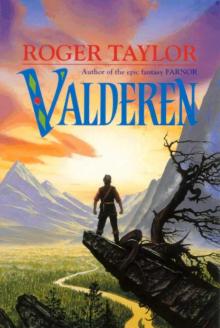 Valderen ft-2
Valderen ft-2 Arash-Felloren
Arash-Felloren The Return of the Sword tcoh-5
The Return of the Sword tcoh-5![Ibryen [A sequel to the Chronicles of Hawklan] Read online](http://i1.bookreadfree.com/i1/03/26/ibryen_a_sequel_to_the_chronicles_of_hawklan_preview.jpg) Ibryen [A sequel to the Chronicles of Hawklan]
Ibryen [A sequel to the Chronicles of Hawklan]![The Call of the Sword [Book One of The Chronicles of Hawklan] Read online](http://i1.bookreadfree.com/i/03/24/the_call_of_the_sword_book_one_of_the_chronicles_of_hawklan_preview.jpg) The Call of the Sword [Book One of The Chronicles of Hawklan]
The Call of the Sword [Book One of The Chronicles of Hawklan]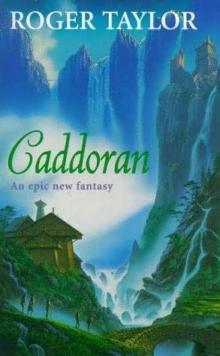 Caddoran
Caddoran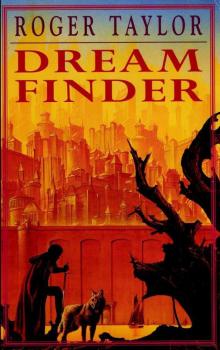 Dream Finder
Dream Finder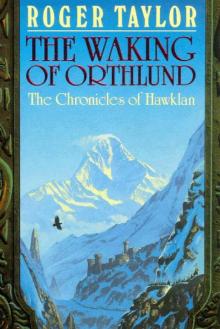 The Waking of Orthlund
The Waking of Orthlund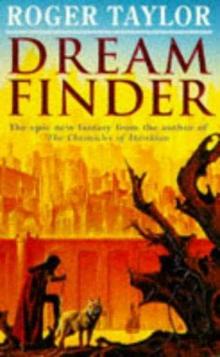 Dream Finder cohs-1
Dream Finder cohs-1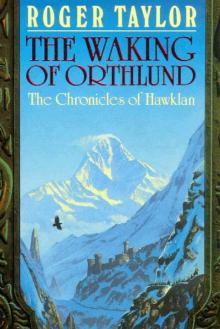 The waking of Orthlund tcoh-3
The waking of Orthlund tcoh-3 The Call of the Sword
The Call of the Sword The fall of Fyorlund tcoh-2
The fall of Fyorlund tcoh-2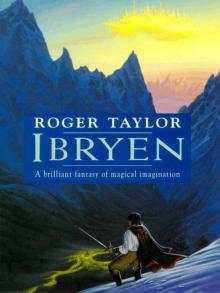 Ibryen
Ibryen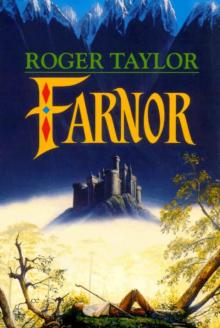 Farnor ft-1
Farnor ft-1 The Return of the Sword
The Return of the Sword![Into Narsindal [Book Four of The Chronicles of Hawklan] Read online](http://i1.bookreadfree.com/i2/04/06/into_narsindal_book_four_of_the_chronicles_of_hawklan_preview.jpg) Into Narsindal [Book Four of The Chronicles of Hawklan]
Into Narsindal [Book Four of The Chronicles of Hawklan]![Valderen [The Second Part of Farnor's Tale] Read online](http://i1.bookreadfree.com/i2/04/05/valderen_the_second_part_of_farnors_tale_preview.jpg) Valderen [The Second Part of Farnor's Tale]
Valderen [The Second Part of Farnor's Tale]![The Fall of Fyorlund [Book Two of The Chronicles of Hawklan] Read online](http://i1.bookreadfree.com/i2/04/08/the_fall_of_fyorlund_book_two_of_the_chronicles_of_hawklan_preview.jpg) The Fall of Fyorlund [Book Two of The Chronicles of Hawklan]
The Fall of Fyorlund [Book Two of The Chronicles of Hawklan]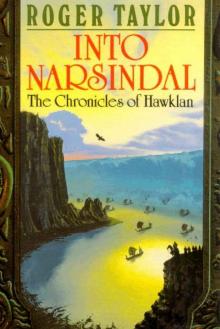 Into Narsindal tcoh-4
Into Narsindal tcoh-4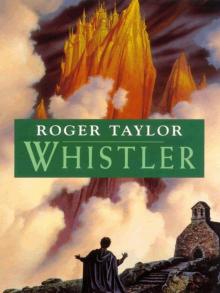 Whistler
Whistler![Whistler [A sequel to The Chronicles of Hawklan] Read online](http://i1.bookreadfree.com/i2/04/12/whistler_a_sequel_to_the_chronicles_of_hawklan_preview.jpg) Whistler [A sequel to The Chronicles of Hawklan]
Whistler [A sequel to The Chronicles of Hawklan] The Fall of Fyorlund
The Fall of Fyorlund![The Waking of Orthlund [Book Three of The Chronicles of Hawklan] Read online](http://i1.bookreadfree.com/i2/04/11/the_waking_of_orthlund_book_three_of_the_chronicles_of_hawklan_preview.jpg) The Waking of Orthlund [Book Three of The Chronicles of Hawklan]
The Waking of Orthlund [Book Three of The Chronicles of Hawklan]